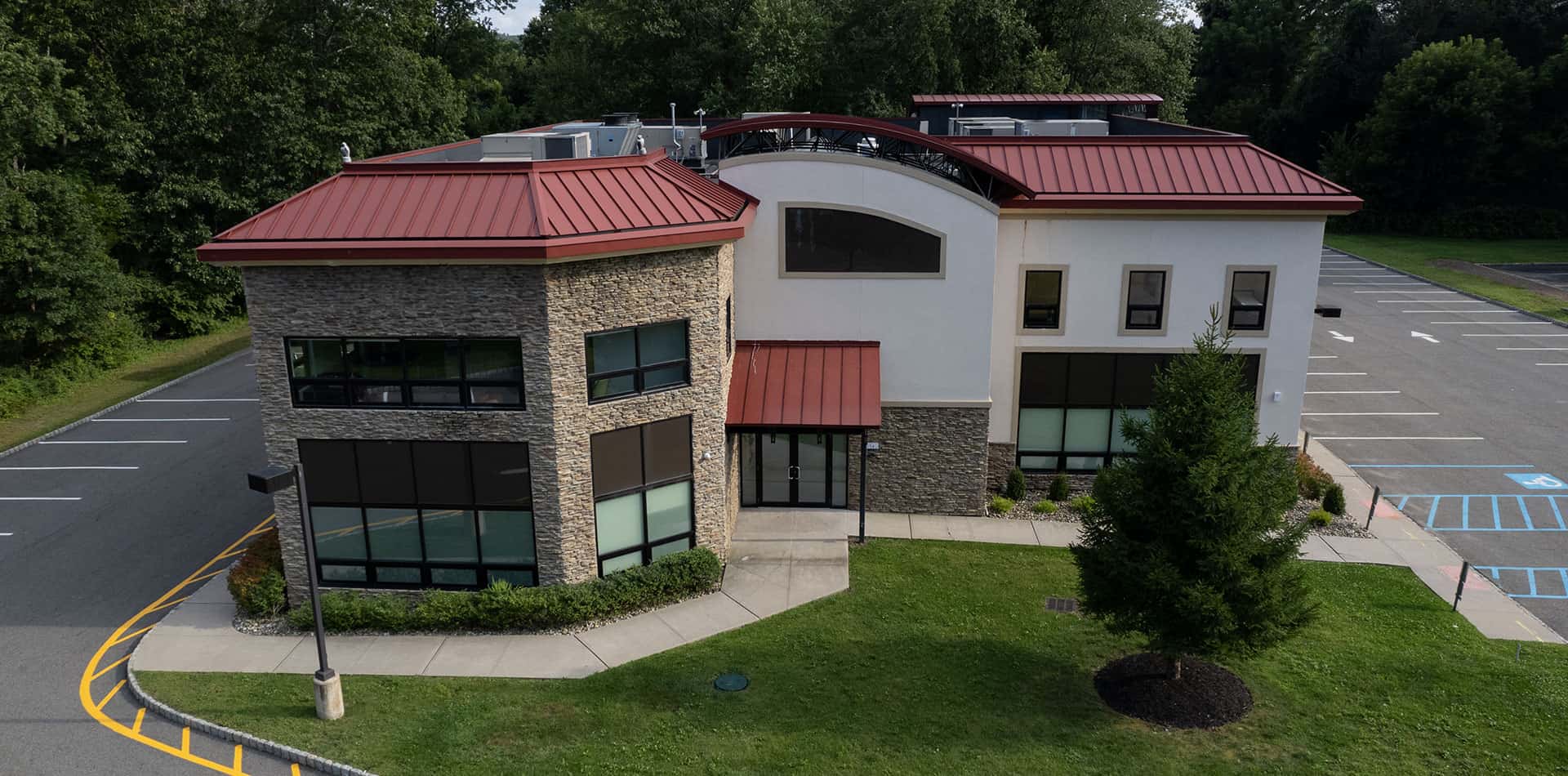Adolescent Intensive Outpatient Program
We will give you the support and guidance you need to get started on the road of long-term recovery.
Teen & Adolescent Substance Use Disorder Intensive Outpatient Program (IOP)
At Guardian Recovery’s intensive outpatient programs (IOP) for adolescents, clients are fully supported by a team of licensed clinicians, support staff members, and peers. Participating in an adolescent IOP helps teens deal with potential challenges in a safe and supervised environment while helping them develop self-confidence, self-esteem, and personal integrity. Contact us today to learn more about our adolescent treatment options.
What Is an Intensive Outpatient Program (IOP) For Adolescents?
An intensive outpatient program for adolescents is a specific level of care that allows teens to attend school, engage in their day-to-day lives, and live at home or a sober living home while simultaneously participating in a substance use disorder treatment program.
Teen addiction IOP typically follows a higher level of care, such as medical detox, residential inpatient treatment, or partial hospitalization treatment. Research has found that “IOPs are an important part of the continuum of care for alcohol and drug use disorders.” (1) IOP can, however, be a standalone treatment option for teens, for instance, when a substance use disorder is mild and does not meet the criteria of needing a live-in treatment option.
IOP is geared toward learning how to reintegrate into the world at large as a substance-free individual. Guardian Recovery’s adolescent IOP programs tackle the root causes and consequences of substance use on multiple levels, such as emotional, mental, social, physical, and spiritual. Additionally, we help our younger clients seamlessly reintegrate into their lives while employing personalized strategies focused on maintaining recovery.
Get Local Help
Helpful, Recovery
Resources
- Our Approach
- Recovery Tips
- Frequently Asked Questions
- Insurance Check
- Ask a Question
How Is an IOP Rehab Program Different From Teen Residential Inpatient Treatment?
Residential inpatient is a substance use disorder recovery program that allows individuals to receive 24/7 care. Teens attending a residential inpatient treatment program reside full-time at their facility while following a daily structured schedule.
There are many benefits to residential inpatient care, including:
- Relief from the stressors of everyday life, distractions, and substance use triggers, allows teens the ability to focus solely on their recovery.
- Around-the-clock clinical care, which is especially helpful during detox.
- Medical and clinical personnel are always available to oversee recovery and ensure each client’s health is improving.
- Access to nutritious, balanced meals that can enhance recovery.
- Ongoing access to case managers and other support personnel.
An IOP differs from a residential inpatient because while in an IOP, teens live more independently, retain more responsibility for day-to-day needs, and have less access to clinical and support staff.
Start Healing Today!
Choose recovery and take control of your life, it’s the path to a brighter future filled with health, happiness, and fulfillment.
The Benefits of Intensive Outpatient Treatment for Teen Recovery
- More personal freedom and flexibility. IOP is an ideal treatment option for teens because it allows them to continue to be able to attend school while in treatment. Additionally, teens can return home once daily treatment concludes.
- A lower treatment cost. Since residential inpatient treatment includes room and board, covering the cost of an IOP program is generally much more manageable if you are uninsured and cannot pay out-of-pocket. At Guardian Recovery, we work closely with most major regional and national health insurance providers to make every level of clinical care we provide as accessible as possible.
- Helping further develop a network of sober supports. IOP provides a built-in support system for adolescents. Teens can offer one another peer support and encouragement as they learn to communicate in healthy and effective ways and develop meaningful friendships. All of the IOP programs we provide are gender and age-specific to make the entire treatment process as focused as possible.
- Medication Assisted Treatment options. Depending on location, our teen IOP program may offer medication-assisted treatment options, such as Suboxone Maintenance, Antabuse, and Vivitrol. These medications can significantly decrease the risk of relapse, reduce cravings, and prevent relapse.
- Transportation. Some of our IOP locations can arrange transportation to and from the IOP facility.
- Beautiful and well-appointed facilities. Our IOP facilities are all newly remodeled with comfortable lounge spaces, cozy group rooms, modern dining spaces, and smoking patios.
- Alumni Group. We have active IOP alumni groups that meet regularly for recovery meetings and events. After clients graduate from one of our IOP programs, they often return to support new graduates and stay connected to the Guardian community.
Complimentary Insurance Check
Find Out Today!
"*" indicates required fields
What Is the Treatment Process Like in an Intensive Outpatient Program?
At Guardian Recovery, the intensive outpatient treatment process utilizes evidence-based treatment modalities to aid each teen in developing adaptive coping, communication, and resiliency. Teens typically attend treatment 3-5 days a week, for 3-5 hours per session.
Many of our locations offer several different time tracks to accommodate different schedules, including a morning track, an afternoon track, and an evening track. The duration of stay in this stage of treatment is based on what is deemed clinically appropriate, but IOP typically lasts at least 60 days.

Our Locations
Our Facilities & Teams Transform Lives
Changing lives by providing comprehensive support and rehabilitation, empowering individuals to overcome addiction and regain control of their health and well-being.
What to Expect in an IOP for Substance Use Treatment
Mental Health Treatment in an Intensive Outpatient Program
Mental health and substance use disorders often co-occur. (2) According to the U.S. Department of Health and Human Services, approximately 49.5 percent of adolescents experience a mental health disorder at some point in their lives. (3)
Having both a mental health and substance use disorder is known as a dual diagnosis or co-occurring disorder. If you, or your teen, have co-occurring disorders, Guardian Recovery offers a holistic approach that addresses both aspects of your well-being. As part of our Intensive Therapy Module, we address co-occurring mental health disorders to provide the best chance at achieving long-term recovery.
Dual-diagnosis addiction treatment typically involves a combination of evidence-based therapies, medications, and support services tailored to your needs. It may include psychotherapy, such as cognitive-behavioral therapy (CBT) or dialectical behavior therapy (DBT), to address the underlying mental health issues and develop healthy coping strategies. Medications may also be prescribed to manage symptoms of mental health disorders and support the recovery process.
Individual therapy, group therapy, and support groups play a crucial role in dual diagnosis treatment, providing a supportive environment where teens can share their experiences, receive encouragement, and learn from others facing similar challenges. (4)
Factors When Choosing IOP Treatment for Your Teen
The most important factor when choosing a teen IOP program is whether it meets your needs. If a teen is progressing from a higher level of care, and the facility offers IOP, transitioning to their IOP program can provide continuity of care with people who already know you.
Other important considerations include:
- Is the program licensed and accredited?
- Do they perform comprehensive evaluations and assessments?
- Do they offer programming at times convenient to your family?
- Do they provide a wide variety of therapies?
- Are family-focused services available?
- Is there access to aftercare and alumni groups?
- Do they offer traditional and holistic therapies?
- Do they provide mental health treatment for co-occurring disorders?
How Do I Know if Intensive Outpatient Treatment Is Right for My Child?
Deciding exactly which program is right for your child can be a difficult task. At Guardian Recovery, our simple admissions process can help you and your family determine which of our treatment programs will best meet your child’s treatment needs. An in depth psychological assessment will be conducted by one of our experienced staff members to help determine which treatment route will help your child meet their recovery goals.
READY TO MAKE A CHANGE?
Your Next Steps
Frequently Asked Questions
Below is a list of frequently asked questions regarding our teen and adolescent substance use disorder intensive outpatient program.
Yes, IOP programs can offer individual, group, and family therapy to help address any mental health concerns.
At Guardian Recovery, one of our trained specialists can help you determine which program will best meet you and your family’s treatment needs.
Guardian Recovery’s IOP programs vary, but they typically last from 3-5 days a week, for 3-5 hours per session. Many of our locations offer several different time tracks to accommodate different schedules, including a morning track, an afternoon track, and an evening track. A teen’s stay in this stage of treatment is based on what is deemed clinically appropriate, but IOP typically lasts at least 60 days.
Yes, one of the main advantages of teen IOP is that they can still attend school while in treatment.
Start Your Recovery Journey Today
Early recovery can be challenging. Guardian Recovery is available to walk you through every step of the process. Most of our compassionate and experienced staff members have been where you are now. Their experience provides us with a unique, empathetic perspective and allows for a deep level of understanding. Your recovery journey begins when you contact us — we will immediately connect you with someone who can help. We understand that substance use disorder treatment is not a one-size-fits-all solution, and we are dedicated to helping you find the treatment option that makes the most sense for your unique clinical needs. Contact us today to begin your journey of recovery.
Sources
- https://www.ncbi.nlm.nih.gov/pmc/articles/PMC4152944/
Reviewed professionally for accuracy by:

Ryan Soave
L.M.H.C.
Ryan Soave brings deep experience as a Licensed Mental Health Counselor, certified trauma therapist, program developer, and research consultant for Huberman Lab at Stanford University Department of Neurobiology. Post-graduation from Wake Forest University, Ryan quickly discovered his acumen for the business world. After almost a decade of successful entrepreneurship and world traveling, he encountered a wave of personal and spiritual challenges; he felt a calling for something more. Ryan returned to school and completed his Master’s Degree in Mental Health Counseling. When he started working with those suffering from addiction and PTSD, he found his passion. He has never looked back.



